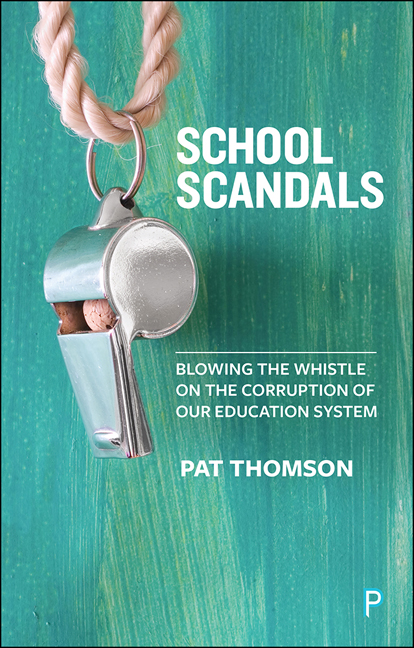Book contents
- Frontmatter
- Dedication
- Contents
- List of Tables and Boxes
- Glossary
- Acknowledgements
- Preface
- 1 A Book about Corruption in Schools
- 2 A Scandalous Schooling Muddle
- 3 Reforming Public Infrastructure
- 4 Costly Measures
- 5 Market Mentalities and Malpractices
- 6 The Effects of Effectiveness
- 7 Secrecy, lies and Gaming
- 8 Rebuilding Organisational Infrastructure
- 9 A Public Good Agenda for Change
- Notes
- Bibliography
- Index
6 - The Effects of Effectiveness
Published online by Cambridge University Press: 25 February 2021
- Frontmatter
- Dedication
- Contents
- List of Tables and Boxes
- Glossary
- Acknowledgements
- Preface
- 1 A Book about Corruption in Schools
- 2 A Scandalous Schooling Muddle
- 3 Reforming Public Infrastructure
- 4 Costly Measures
- 5 Market Mentalities and Malpractices
- 6 The Effects of Effectiveness
- 7 Secrecy, lies and Gaming
- 8 Rebuilding Organisational Infrastructure
- 9 A Public Good Agenda for Change
- Notes
- Bibliography
- Index
Summary
DfE: school improvement has ‘arrested or reversed’ in some academies
Schools Week, 23 January 2019State funded academies deliver poor exam results
Financial Times, 20 December 2018Schools staying with their local council more likely to remain good/outstanding
Local Government Association press release, 23 May 2019The problem isn't the framework, it's high stakes accountability
Schools Week, 19 January 2019Schools to get curriculum review grace period under new Ofsted inspection framework
Schools Week, 14 May 2019John Chubb and Terry Moe's book Politics, markets, and America's schools addressed ineffectiveness in the US school system. Chubb and Moe argued that declining educational quality (as measured by test scores) could be attributed to a power imbalance in the school system – state control needed to be balanced by parent power and school autonomy. Effectiveness, achieved through clear school goals, rigorous academic standards and high expectations, good discipline, regular use of homework, strong leadership, teacher participation in decision making and parent support, was dependent on separating schools from bureaucratic interference. Public schools should become like private schools (higher quality, better test scores) directly accountable to parents.
Chubb and Moe argued that accountability to parents and competition was the only way to reduce the dead hand of inequitable monopoly. State-administered schooling must give way to a competitive devolved system. Chubb and Moe's quality solution was for school autonomy, with schools free to select students and to create their own curriculum; charter schools (schools set up by any group capable of doing so); and a voucher system which would allow parents to choose any school for their children.
Critics took issue with the research underpinning these proposals – a comparison of public and private schools which omitted significant questions of social context and resourcing – as well as with the untested solution that Chubb and Moe proposed. Chubb and Moe advocated a full market system as more effective than any other. But no such system was in existence. Whether a marketised, deinstitutionalised system would provide more equitable education was thus a matter of belief, critics said. Chubb and Moe offered a policy solution which had no basis in evidence.
- Type
- Chapter
- Information
- School ScandalsBlowing the Whistle on the Corruption of Our Education System, pp. 121 - 148Publisher: Bristol University PressPrint publication year: 2020



